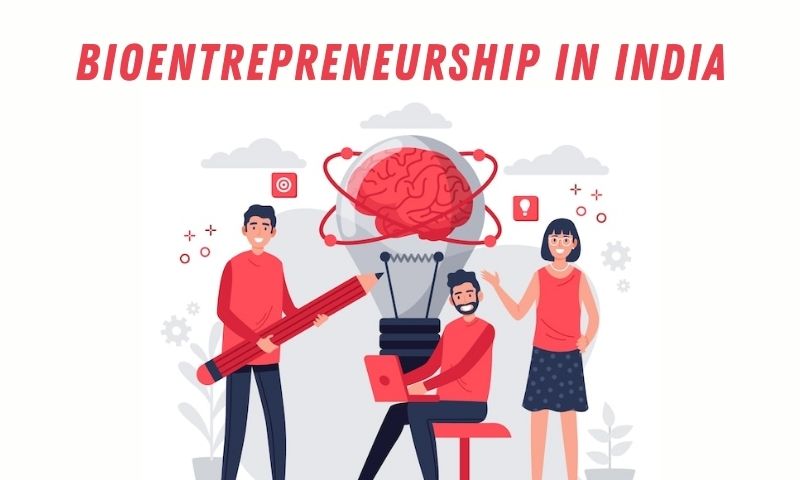
India has started on a large-scale biotechnology initiative with the goal of utilizing its vast manpower and biological assets. Biotechnology is not a new field but exists around us since years. The manufacturing of beer via fermentation processes is amongst the very familiar applications of biotechnology that stretches back to antiquity. This method includes inducing a biochemical response in food items by using microbes like yeast in their natural state. In reality, the procedure has remained unaltered from its inception.
India is amongst the top 12 leading biotechnology spots in the globe and the Asia Pacific region’s third-biggest biotechnology attraction. In the Central and South Asian area, India is likewise placed first in the Global Innovation Index. The extent and degree of biotechnology in India is nearly incredible. During the COVID-19 epidemic, Indian scientists, inventors, and regulators collaborated to produce cost-effective diagnostics, developed therapies, and undertook research to generate secure and effective vaccinations.

In India, Biotech sector revolves around Bioagriculture, Bioindustrial, Biopharmaceutical, Bioservices and BioIT. India has emerged as a key vaccine maker in the biopharmaceuticals sector, with a leadership position in the provision of measles, BCG and DPT vaccinations, among several others. Because of the substantial percentage of technical and scientific graduates, India’s biotech-industry has over 5,000 enterprises with 760 core corporations and 4,240 start-ups, and an extremely competent resource base.
India was among the first nations worldwide to create a government unit completely devoted to biotech in 1986, thanks to the urging of the then-prime minister of India, Rajiv Gandhi. The Department of Biotechnology (DBT) is a department Indian government that is responsible for developing and commercialising advanced biology and biotech in India. It is a part of the Ministry of Science and Technology. The ministry has sponsored the construction of eight biotech parks, or incubators, in locations like as Bangalore, Hyderabad, Lucknow, Kerala and Chennai in addition to building and strengthening 17 Centres of Excellence in Biotechnology at colleges and universities across the country.
The goal of such parks is to avail facilities for researchers and small to medium-sized enterprises (SMEs) to research, display, and even establish pilot units for their inventions. The expectation is that it will hasten the process of commercialisation. The park’s team also offers guidance and assistance on topics including intellectual property rights, company strategy, new therapeutic proposals, and exit strategies. The Biotechnology Industry Research Assistance Council (BIRAC) is the crowning glory of the department and the initiative that gets the most attention. The Department of Biotechnology established this non-profit general populace organisation in 2012 to “enhance, promote, and strengthen the strategic research, innovation and engineering competencies of the Indian biotechnology industry, primarily the start-ups and SMEs.”
Its services include ‘biotechnology ignition grants’ of about 5 million rupees for rising start-ups and growing entrepreneurs to move concrete evidence to the first important step toward commercialisation. Another is a framework as “glue grants,” which combines clinical-science branch with fundamental science areas in academic institutions or universities in the hopes of encouraging cooperative relationships.
The biotech industry is positioned for expansion, fueled by expanding local and worldwide market.
The biotechnology divisions have the following proportion:
Vaccine with 17.8%, BioIT/Healthcare Research for 15%, COVID Bioeconomy accounts for 7.8% of the total, d Diagnostics and medical devices accounted for 25.6 percent of the total, 14.4 percent for BT Cotton, 1.4 percent biofertilizers/biopesticides, Enzyme, which accounts for 3.7 percent of the total, biofuels account for 3.6 percent of the total, biologics and therapeutics with 10.7%.
While academic brilliance is understood, the immediate demand is for secure, inexpensive healthcare and medical solutions that can save countless lives. This is the most important task confronting today’s modern bioentrepreneurs.


![[Funding alert] Uniqus Consultech Raises $10 Million in Series B Funding [Funding alert] Uniqus Consultech Raises $10 Million in Series B Funding](https://viestories.com/wp-content/uploads/2024/04/Uniqus-Consultech-Raises-10-Million-in-Series-B-Funding-265x198.webp)

![[Funding alert] Circle of Games Raises $1 Mn Funding From Nazara Technologies, Others [Funding alert] Circle of Games Raises $1 Mn Funding From Nazara Technologies, Others](https://viestories.com/wp-content/uploads/2024/04/Circle-of-Games-Raises-1-Mn-Funding-From-Nazara-Technologies-others-265x198.webp)